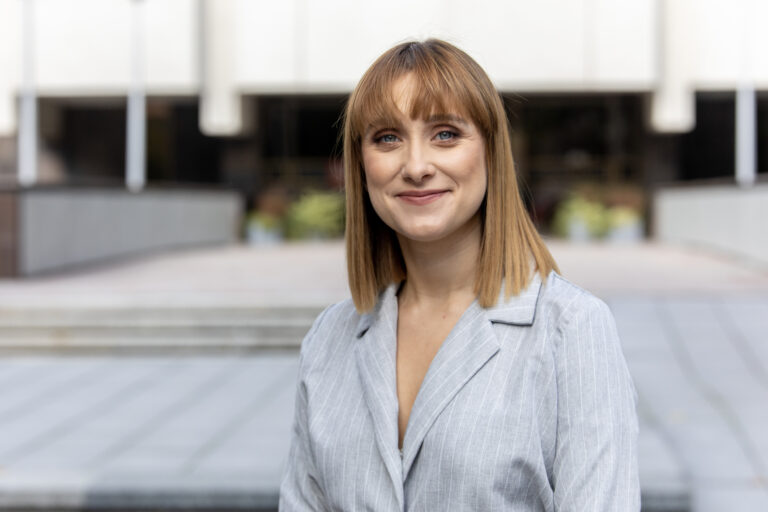Kurkime modernią Lietuvos ateitį kartu
RegistruotisŠvietimo, mokslo ir sporto ministerija
Mokinių, turinčių didelį mokymosi potencialą, atpažinimas bei ugdymas
Problem
Pagal 2015 m. PISA tyrimų rezultatus, skirtingose vietovėse (didmiestyje, mieste, kaime) lankančių mokinių pasiekimų skirtumas yra dvigubai didesnis nei EBPO šalių vidurkis. Pasiekimų atotrūkis pastebimas tiek skirtingose disciplinose, tiek skirtingose ugdymo pakopose. Šiandien Lietuvoje veikia 957 mokyklos, iš kurių 331 mokykla yra kaime (Oficialiosios statistikos portalas, 2021). Kaimo vaikams pavyti Vilniaus vidurkį prireiktų daugiau nei 2 papildomų mokslo metų. Pirmojo projekto „Atskirties mažinimas švietimo srityje skirtinguose regionuose“ metu identifikuota, jog toks atotrūkis gali atsirasti dėl skirtingų priežasčių, viena jų – nepakankamas didelį mokymosi potencialą turinčių vaikų atpažinimas.
Kaip šiandien įsivaizduojame vaikus, turinčius didelį mokymosi potencialą? Ar visuomet jie yra tik gerai besimokantys, motyvuoti mokiniai? Mokslininkai, edukologai ir pedagogai sutinka, jog ne tik. Šie vaikai pamokose kartais išsiskiria kaip reiklūs, keliantys klausimus, ne visuomet tinkamai besielgiantys (Girdzijauskienė et al., 2018: 6). Mokytojo ar visuomenės įsivaizdavimas, koks yra mokinys, turintis didelį mokymosi potencialą, gali prasilenkti su tuo, koks jis yra iš tiesų. Didelį mokymosi potencialą turinčių mokinių yra 15–20 proc., remiantis įvairiose šalyse atliekamais skaičiavimais. Šiuos skaičius patvirtina Lietuvoje atliktas tyrimas: vyresnėse klasėse jų yra apie 20 proc., pradinukų – apie 17 proc. Tai yra apie penktadalis visų mokyklinio amžiaus vaikų.
Didelį mokymosi potencialą turinčių mokinių įgalinimui svarbus atpažinimas bei ugdymas. Mokytojai pripažįsta, kad jiems itin trūksta žinių apie didelį mokymosi potencialą turinčius vaikus bei metodinių priemonių (Švietimo naujienos, 2022).
Lietuvos Respublikos švietimo įstatyme bei kituose lydinčiuose teisiniuose dokumentuose nėra nuoseklios ir aiškios didelį mokymosi potencialą turinčių moksleivių ugdymo ir atpažinimo strategijos, dėl to trūksta tarpinstitucinio bendradarbiavimo ir aiškaus atsakomybių paskirstymo. Dėl šios priežasties suinteresuotosios šalys vartoja skirtingas sąvokas, kurios ne visada reiškia tą patį arba nėra paaiškinamos. Taip pat švietimo įstatyme nėra aiškiai įtvirtinta, ar šie mokiniai yra priskiriami specialiųjų ugdymosi poreikių turintiems; ar turi teisę sulaukti papildomos pedagoginės bei psichologinės pagalbos.
Goal
Didinti mokinių, turinčių didelį mokymosi potencialą, temos svarbą institucijose bei Švietimo įstatymo kontekste, suteikti žinių pedagogams bei švietimo bendruomenei, kaip atliepti šių vaikų ugdymosi poreikius.
Project progress
2022/03/31
Parengta sąvokų analizė
2022/04/26
Atlikta užsienio gerųjų praktikų analizė
2022/05/02
Parengtas esamos situacijos apžvalgos Lietuvoje pristatymas ŠMSM darbuotojams bei pradinis atpažinimo bei ugdymo schemos dvilapis
2022/06/02
Įvykdyta viešoji konsultacija, parengtas jos rezultatų apibendrinimas bei ataskaitos
2022/08/12
Švietimo pagalbos priemonių mokykloms įgyvendinimo plano rengimas kartu su Nacionaline švietimo agentūra (NŠA)
2022/08/29
Suorganizuota konferencija mokyklų darbuotojams „Į(si)galink: ugdau vaiką, turintį didelio mokymosi potencialą“
2022/09/02
Aktualių ir galiojančių švietimo srities LR teisės aktų apžvalga bei įsitraukimas į teisėkūros procesą, teikiant švietimo įstatymo pakeitimo siūlymą
Project files
Result


